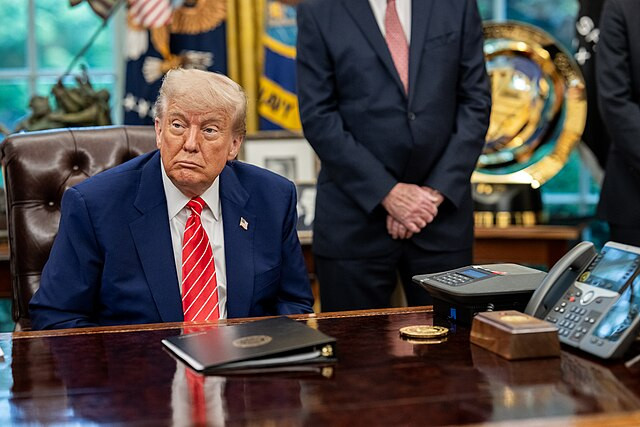The Congressional Budget Office said Wednesday that President Donald Trump's sweeping tax and spending package would increase the national debt by $2.4 trillion over the next decade, a sharply lower estimate than previous projections but still substantial enough to deepen divisions within the Republican Party.
The updated analysis of the 1,100-page bill, which passed the House on May 22 without Democratic support, comes amid rising internal GOP tensions and mounting public criticism from Trump ally Elon Musk, who on Tuesday called the bill a "disgusting abomination." Musk's comments gave fresh ammunition to Republican deficit hawks uneasy about the plan's long-term fiscal implications.
The CBO previously estimated that the legislation-central to Trump's second-term agenda-would raise the debt by $3.8 trillion. The new estimate reflects late-stage changes made to secure passage in the House, including adjustments to Medicaid cuts and immigration enforcement funding.
Under the bill, federal revenues would decline by $3.67 trillion over ten years, while spending would decrease by $1.25 trillion. The bulk of the revenue loss comes from extensions of the 2017 Trump tax cuts and new breaks, including a suspension of taxes on tips, overtime, and Social Security-linked earnings.
The CBO said nearly 11 million Americans would lose health insurance under the legislation, with 1.4 million undocumented immigrants affected by a rollback of state-funded coverage. Many of the cuts are tied to tightened eligibility rules and work requirements for Medicaid and food assistance programs.
Republican leaders, including Senate Majority Leader John Thune, sought to minimize the political fallout from Musk's criticism. "We obviously respect everything that Elon did with DOGE. On this particular issue, we have a difference of opinion," Thune told reporters.
The White House has also dismissed Musk's remarks. Musk left the administration's budget task force last week after failing to meet his goal of cutting $2 trillion from the federal budget.
The legislation now faces an uncertain path in the Senate, where Republicans hold a narrow 53-47 majority. Several key GOP senators have indicated they will demand changes, including Wisconsin's Ron Johnson and Kentucky's Rand Paul, who have both flagged deficit concerns.
Other friction points include provisions rolling back Biden-era clean energy tax credits. Four Republican senators have warned in a letter that such reversals would "create uncertainty, jeopardizing capital allocation, long-term project planning and job creation in the energy sector and across our broader economy."
The bill's immigration section would expand deportation capacity to up to 1 million people annually and significantly increase funding for border enforcement. It also includes provisions to loosen regulations on firearm silencers.
As Senate Republicans work to draft their version, the CBO has promised a forthcoming analysis that includes macroeconomic effects. A similar dynamic played out in 2017, when growth estimates modestly offset deficit projections-but not enough to erase them.
While GOP leadership has vowed to deliver a final bill, internal divisions remain sharp. "Failure is not an option," Thune said. "We are going to succeed."






